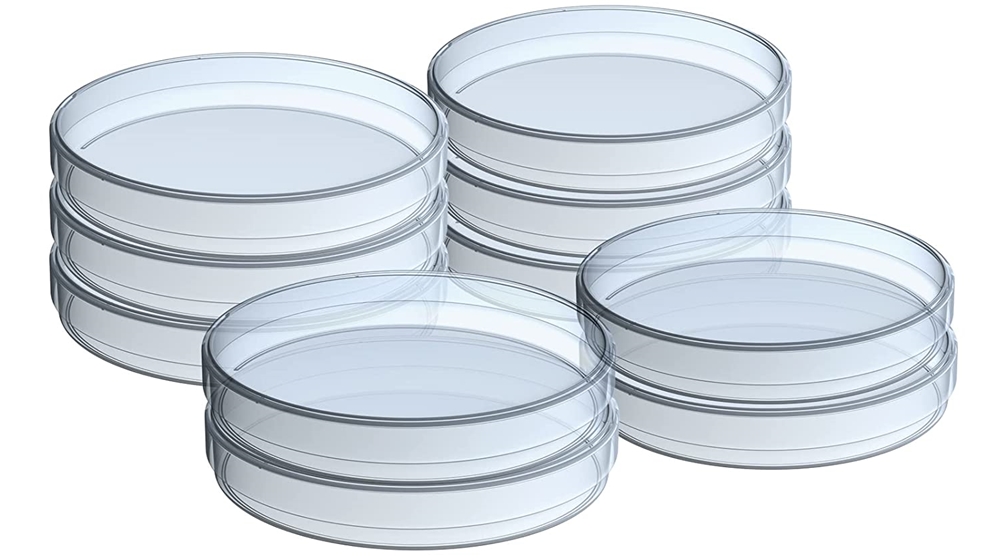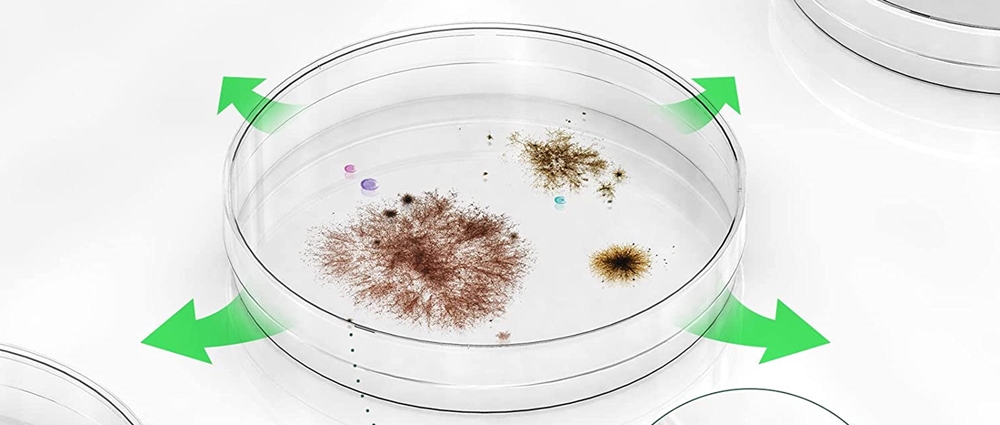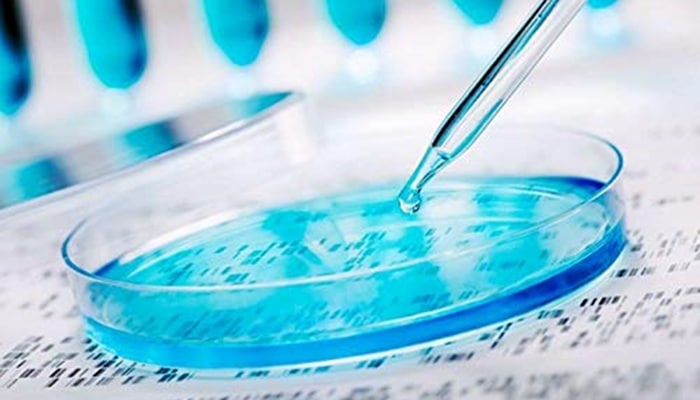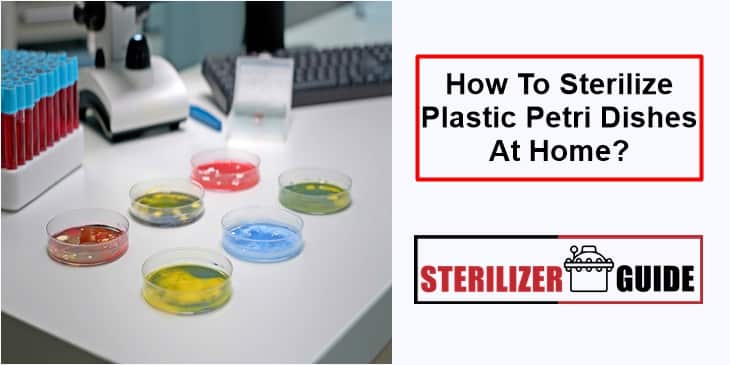If you’re a scientist or medical student, you’ve likely used a variety of plastic petri dishes in your experiments. Even if you’re not, plastic petri dishes are sometimes used in the home. They are inexpensive and durable, which makes them an ideal choice for any home use. This post will explain how to sterilize plastic petri dishes at home.
Contaminants are hard to remove from plastic petri dishes, and sterilizing them helps rid the dish of any unwanted substances. This post will also explain how to properly clean plastic petri dishes. They will be clean and ready to be used again.
What are the different types of plastic petri dishes?
Petri dishes are small dishes that are used to culture bacteria. In order to sterilize plastic petri dishes, you’ll want to be familiar with the different types of plastic petri dishes. There are three main types of plastic petri dishes: those made from polystyrene, those made from polypropylene, and those made from polycarbonate.

The type of plastic petri dish you’ll want to use will depend on your lab and the types of experiments you are running. Polystyrene dishes are best for experiments that involve physical contact and is often used for agar plates. Polypropylene dishes are often used for rapid microbial growth and is often used for liquid cultures. Polycarbonate dishes are often used for high-level radiation experiments and are often used for dry cultures.
What are the benefits of using plastic petri dishes?
Plastic petri dishes are extremely popular in microbiology and are used to cultivate microorganisms and grow many different types of cultures. These small dishes are made out of plastic and are designed to have a rounded bottom that allows for a sample to be placed at the center of the dish. There are a number of benefits to using a petri dish. Plastic petri dishes are inexpensive and easy to clean. You can get a small dish for as little as $1.99. They also stack easily, which is helpful if you plan on using them for a long-term experiment.
Petri dishes are an essential tool for microbiologists when they need to culture cells. They are also used to produce a variety of food items, such as cheese and yogurt. These items can be consumed by humans or used as ingredients in other products. There are many benefits to using plastic petri dishes. They are easily disposable and durable. They are also lightweight and easy to clean.
For these reasons, they are a great option for a lab setting. If you’re not using them in a lab setting, they’re still a good option. They’re perfect for storing leftovers and other food items that you don’t want to worry about spoiling. When you’re not using them, they can be easily stored in the refrigerator.
What are the methods for sterilizing plastic petri dishes at home?

A lot of people are wondering how to sterilize plastic petri dishes at home? If you’re not sure of how to sterilize or clean plastic petri dishes, you can use this blog post to learn how. Using this information, you will be able to clean your plastic petri dishes at home.
Cleaning petri dishes properly is an important step to ensure that your cultures stay healthy and you can keep working with them. There are a few ways that you can sterilize your plastic petri dishes. You can use a dishwasher, boiling water, microwave, and sterilizer. Here is a step-by-step guide on how to sterilize your petri dishes at home.
How to sterilize plastic petri dishes using a sterilizer?
A petri dish is an essential tool in microbiology labs and a must-have in any environmental science and science education lab. Petri dishes are often used to observe and test a variety of things, from bacteria to fungi, and they come in a variety of sizes and shapes. When it comes to cleaning your petri dishes, however, many people are unsure about the best way to sterilize them and what types of things to use. The most recommended option is to use a sterilizer.
To sterilize your plastic petri dishes, you will need to load them into the sterilizer and put the lid on. You will need to remove the lid once the sterilization process is done. If you have a microwave sterilizer, after you remove the lid, put the dishes in and close the lid. If you have a steam sterilizer, put the dishes in and wait for a few minutes for the steam to start.
UV sterilizers are great for sterilizing petri dishes and other lab equipment. UV sterilizers are devices that use UV light to kill bacteria on petri dishes. The UV light is able to kill bacteria in the twenty seconds that it takes to sterilize the dish. However, the UV sterilizer does not have the capability to kill all bacteria. There are some bacteria that cannot be killed by UV light and you will have to use a chemical sterilizer to kill those bacteria.
Another way to sterilize plastic petri dishes is to use an autoclave. Autoclaves use high-pressure steam and heat to kill bacteria on plastic petri dishes. You will need to leave the petri dish plugged into the sterilizer for about 20 minutes, or until it has reached the required temperature.
How to sterilize plastic petri dishes using hydrogen peroxide?

One of the most common uses for plastic petri dishes is for culturing bacteria and other cells. This process is already very important in a laboratory setting and is becoming more and more popular in the home. If you want to use plastic petri dishes in the lab, you need to sterilize them, otherwise, they will not work.
The process of sterilizing plastic petri dishes at home with hydrogen peroxide is simple and easy. To do this, you will need to submerge the dishes in a solution of hydrogen peroxide. The dish should be immersed in the hydrogen peroxide for a few minutes before you wash them thoroughly. After the dishes have been washed, you will need to rinse them with water. The dishes should only be washed with water and then they should be allowed to air dry.
How to sterilize plastic petri dishes using a microwave?
Sterilizing plastic petri dishes at home is not always easy. Cleaning your plastic petri dishes is one of the most important steps in the process of culturing bacteria. There are many ways to sterilize the petri dishes. One way to do this is to place the dishes in a microwave. The process for sterilizing your petri dish at home is straightforward. What you need is a microwave. As long as you don’t put too many dishes inside, the dishes should be able to fit in the microwave.
If you have a microwave with a metal rack, this will be even easier. Make sure that you place the dishes on the metal rack for the microwave. The dishes may also be placed on a metal plate if you don’t have a metal rack. This will ensure that the dish doesn’t tip over. You should first place them in the microwave for a few minutes on high. This will ensure that your dishes are clean and your microwave is clean.
You should not put plastic petri dishes in the microwave for longer than 6 minutes. You will then need to use a clean paper towel to dry the petri dish. This is important because it will help prevent the growth of bacteria that could affect your experiment.
How to sterilize plastic petri dishes using a dishwasher?
Plastic petri dishes are a great tool for creating culture media that are used in the laboratory. They are also used for growing bacteria in liquid media. These dishes are typically made from polystyrene, which makes them easy to sterilize using a dishwasher.
However, there are some instances when a dishwasher won’t be able to sterilize the dishes. It is important to check whether or not the dishwasher can be used as a sterilization method before you use the dishwasher to sterilize your plastic petri dishes. The dishwasher is not very effective at sterilizing the dishes, and it is also not an eco-friendly option.
To sterilize your petri dishes, place them on the top rack. They should be placed on the rack so that they are lined up to allow water to flow freely across their surface. This will help to kill any bacteria on the dish. When you are done, you should turn your dishwasher on to heat dry. As your dishes are drying, they will heat up and kill any bacteria on the dishes.
If you are using a dishwasher that has a heated dry cycle, this should be used to sterilize your dishes. The heated dry cycle should be used for about an hour and a half. If you are using a dishwasher with a dry cycle, the dry cycle should be used for about half an hour.
You can use a dishwasher to sterilize the petri dishes in three ways. You can use the sterilization cycle, which heats the dish to an ideal temperature and kills any bacteria, uses the sterilization cycle with a bleach solution, or use the hot water cycle. Be careful when using the dishwasher to clean the petri dishes because it can warp the lids.
Things to consider before using a dishwasher to sterilize petri dishes
There are a few things to consider when sterilizing your plastic petri dishes. What kind of dishwasher are you going to use? Are you going to use a top-rack dishwasher? Or is it going to be hand-washing only?
If you are going to use a top-rack dishwasher, you should make sure that the water and dishwasher cycle are on the hottest setting. You should also make sure that the dishwasher is clean. You can also use vinegar to clean your dishwasher. Make sure that you use a cloth as well.
What to do if you don’t have a microwave or sterilizer?
Petri dishes are a common way to hold bacteria, fungi, and other living organisms that are being studied. They are also a common way to keep bacteria and fungi in an isolated area where they cannot reproduce. When you are in the process of doing research and you need to sterilize plastic petri dishes, it is important that you do it correctly.
However, you may not have the means to do so and you may not want to buy a microwave or a sterilizer. If that is the case, you can sterilize the plastic petri dishes at home. It does not require any particular process, but you do need to make sure that you use clean, hot water, and a detergent.
Sterilize your petri dishes by boiling them. Boiling is the most common way to sterilize dishes and it is a safe way to sterilize your dishes. Place the petri dishes in a pot of boiling detergent water and let them boil for 10 minutes. Remove the petri dishes and let them cool. You should also make sure that you dry the dishes.
You can dry them with a towel, or use a drying rack. The most important thing is that you make sure that the dishes are dry before you put them away. Let your dishes cool then use them again.
You may also read: How To Sterilize A Needle? [Ultimate Guide]
How to store plastic petri dishes?
Now that you have a few petri dishes, you will be faced with the question of how to store them. For those who plan on using petri dishes for a project, you may want to sterilize them. This is one of the most important steps to a successful experiment. If you plan on using the plates for a while, you will want to store them in a safe and clean place, so they don’t develop any bacteria. One way to do this is by putting the petri dishes in a zip-lock bag. This will keep any bacteria away from the plates, and it will help keep them clean.
However, if you don’t have a zip-lock bag, you can store them in the refrigerator. If you don’t have a refrigerator, you can use a freezer. Another way is to purchase a plastic petri dish holder that can hold many plates at once.
The last method is to store them in a dark place in a container with a lid, which will help to prevent dust from getting inside the container. If you plan on using the petri dishes one time, you may not need to sterilize them. You may also want to use them in a lab, so they are already sterilized. If you plan on using the plates more than once, you will need to sterilize them before you use them.
Final Verdict
One of the most important things that you need when you are performing experiments are the plastic petri dishes. If you’re new to the world of lab work or have to maintain a steady supply of petri dishes, you know how difficult and costly it can be to constantly bring in new ones. But there is a solution! By learning how to sterilize your own petri dishes, you can get a head start on your research work, saving you time and money.
We hope you enjoyed our blog post on how to sterilize plastic petri dishes at home. We know that many people are wondering how to sterilize petri dishes themselves. Our post gives you a step-by-step guide on how to sterilize your petri dishes at home! It’s important to use proper cleaning methods to maintain the quality of your petri dishes. We hope these tips help you take care of them! Please contact us anytime if you have any further questions. Thank you for reading, we would love to hear from you!
People also ask – FAQs
You will need a sizable pot, a rack or stand to keep the plastic Petri dishes off the bottom of the pot, a pot lid, and some water to sterilize plastic Petri dishes at home. A thermometer is also required to keep track of the water and dish temperatures.
Plastic Petri dishes can be used again after being disinfected, but it’s crucial to make sure they are fully cleaned and sterilised before each usage. Plastic Petri dishes may scratch or sustain other damage over time, which might make sterilization more challenging. To guarantee precise and trustworthy results, it’s a good idea to replace them on a regular basis.
You must boil plastic Petri dishes for at least 15 minutes in order to sterilize them by boiling. To make sure the water temperature stays at or above 121°C (250°F) throughout, it is a good idea to use a thermometer.
Depending on the particular needs of the experiment or culture, the frequency of sterilization will vary. In order to ensure that the dishes are clean and free of infection, it is often a good idea to sterilize them before each usage. It might be required to sterilize the plates on occasion to maintain sterility if they will be used for a number of days or weeks.
A sterility test is the only way to determine whether your plastic Petri dishes are sterile. In this method, a sample of the medium or agar is incubated in a plate while the development of bacteria is monitored. If there is no growth, the dish is deemed to be sterile. For outcomes that are accurate and dependable, it’s crucial to utilize the right quality control procedures and adhere to specified guidelines.

